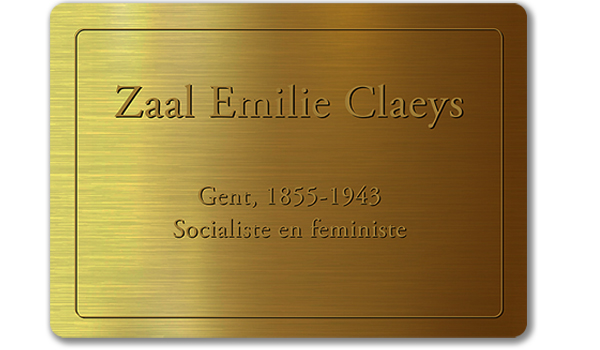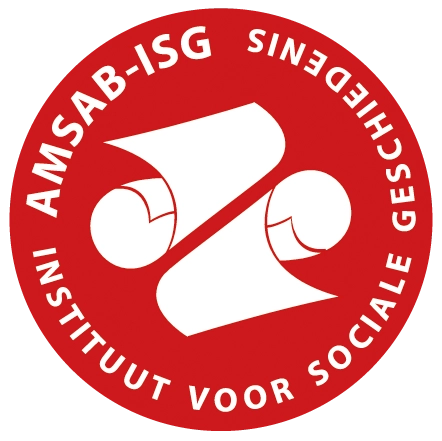Sinds haar vermelding in de Canon van Vlaanderen vorig jaar, is er opnieuw volop belangstelling voor de socialiste en vroege feministe Emilie Claeys. In 1893 werd zij als eerste vrouw opgenomen in de landelijke raad van de Belgische Werkliedenpartij, en liet ze haar stem horen op nationale en internationale congressen, in de krant Vooruit en het blad De Vrouw, en in een reeks opgemerkte brochures voor arbeidersvrouwen.
Emilie Claeys pleitte voor vrouwenstemrecht en geboortebeperking, en was met een aantal radicale en erg modern aandoende standpunten haar tijd vooruit. Het verhaal eindigde niet in schoonheid: na een affaire met een gehuwde man werd ze door de katholieke en liberale pers aan de schandpaal genageld, wat haar politieke carrière vroegtijdig beëindigde in 1896.
Maar de herinnering aan haar moedige optreden en rake woorden blijft voortleven. De Vrienden van Ons Huis nemen het initiatief om een prachtige art nouveauzaal op de vijfde verdieping van Ons Huis op de Vrijdagmarkt in Gent te vernoemen naar deze voorvechtster. Op 10 februari 2024 wordt de Zaal Emilie Claeys ingehuldigd met lezingen door onder meer Gita Deneckere en Marleen Temmerman. Het evenement wordt gesteund door onder meer Linx+ en de vzw Het Syndicaal Huis.
Er komt een gedenkplaat in de nieuwe Zaal Emilie Claeys. De zaal wordt tevens heringericht met een kleine maar permanente tentoonstelling gewijd aan het leven van deze vroege feministe, verzorgd door Amsab-ISG.
See Emily Play
Kennis maken met de rake en expliciete gedachten van Emilie Claeys kan nu vanuit uw luie zetel!
De Vrouw, het opinieblad dat mede door Emilie Claeys werd opgericht, staat online bij Amsab-ISG en is vrij raadpleegbaar.
Blader door de acht jaargangen van dit vroege feministische tijdschrift.
'Wij zijn als vrouwen, als echtgenooten en als moeders, altijd afhankelijk van buiten het huis gelegen toestanden, welke niet alleen ons bestaan maar ook dat onze kinderen bedreigen. En dan zou men ons nog niet eens toelaten ons met de politieke en publieke belangen des lands te bemoeien! Welhoe! Dagelijks worden wij in onze innigste gevoelens getrokken, en wij zouden naar het hoe en waarom dezer toestanden niet mogen vragen? Wij zouden niet mogen vragen waarom de huishuur en de levensmiddelen opslaan? Waarom onze zonen worden kreupel geschoten en vermoord? Waarom onze echtgenooten broodeloos langs de straten loopen? Waarom onze kinderen van in hun prilste jeugd van alle onderwijs en opvoeding worden verstoken, om te worden opgesloten in ongezonde pestholen van fabrieken en werkhuizen waar zij naar lichaam en geest worden verbeest? [...] Elke verkeerde leiding van de staatszaken, elke beursspeculatie, elke crisis die wij doorworstelen, werpt ons den honger ten prooi; voert ontelbare onzer zusters in de armen der prostitutie, of zet haar aan tot zelfmoord! En wij zouden met dit alles maar steeds tevreden moeten zijn, wij zouden steeds met gesloten oogen, dichtgestopte ooren en de handen in den schoot gevouwen, dit alles moeten gedoogen?'
Emilie Claeys, Het vrouwenstemrecht, 1892, p. 19








